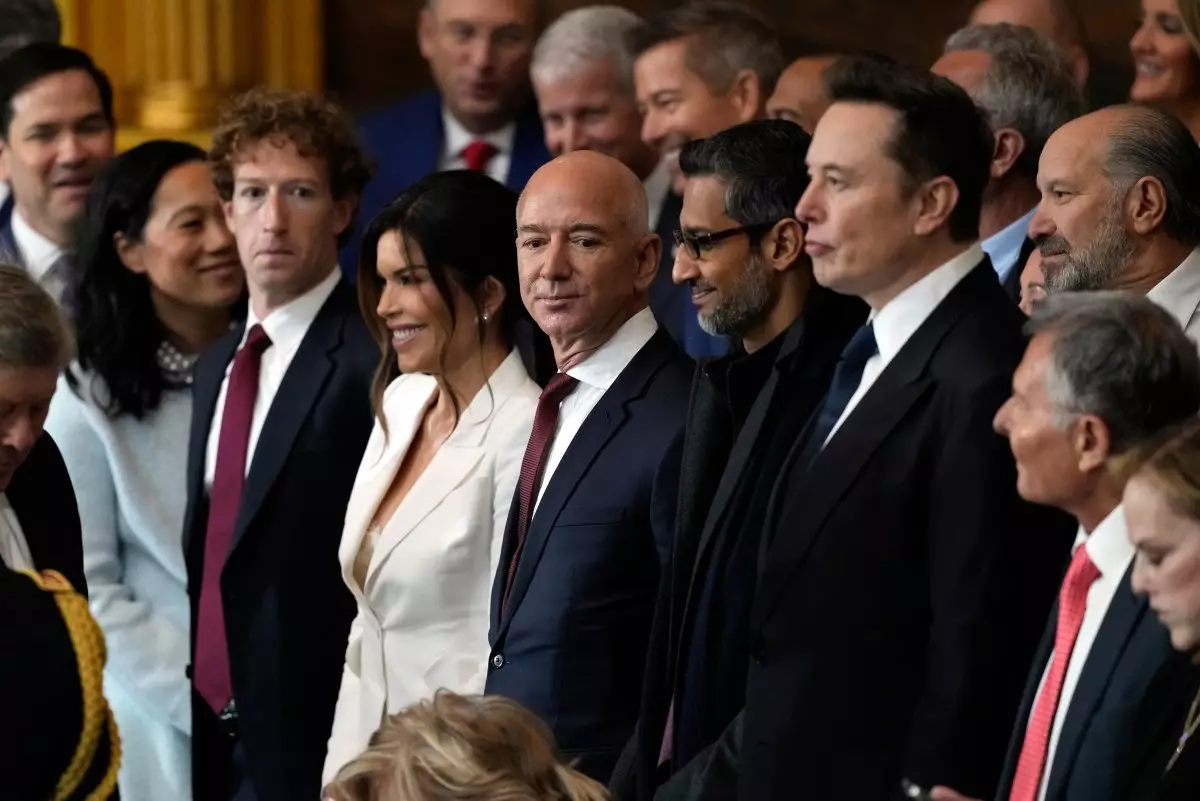In a striking maneuver that epitomizes the tensions between American political factions and the tech industry, House Judiciary Chair Jim Jordan (R-OH) has issued inquiries to 16 prominent technology firms, including titans like Google and OpenAI. Jordan’s letters, sent on a Thursday, aim to uncover any communications indicating collusion or coercion from the Biden administration towards these companies regarding the censorship of lawful speech, particularly in the realm of artificial intelligence. This overture suggests not only a strategic pivot in the conservative agenda but also sets the stage for a new chapter in the cultural battles surrounding technology and free speech.
The assertion that the Biden administration may have attempted to manipulate AI platforms into suppressing conservative viewpoints paints a provocative picture. Jordan’s past endeavors, which include investigating similar allegations about social media, hint at a broader narrative: Big Tech is increasingly seen as an adversary to conservative principles. By refocusing scrutiny on AI companies, Jordan is questioning whether these entities have become modern arbiters of information, wielding their power with implicitly partisan motives.
Allies and Omissions in the Inquiry
Interestingly, out of the 16 firms targeted by Jordan, one glaring omission catches the eye: xAI, founded by Elon Musk, a notable ally of Donald Trump. Musk’s company has taken a front-row seat in discussions around AI censorship, making its exclusion from this inquiry particularly curious. Was this oversight merely a lapse in judgment, or does it reflect a calculated strategy to avoid alienating one of the most influential voices in tech? The absence of xAI in the inquiry raises questions regarding the interplay between political alliances and technological oversight.
Jordan’s letter to executives at companies like Microsoft and Apple, among others, demands transparency, compelling these firms to disclose communications related to their dealings with the Biden administration. The deadline for compliance looms on March 27, creating a ticking clock that adds pressure on these companies. Their responses—or lack thereof—will likely fuel ongoing narratives concerning Big Tech’s relationship with government entities, particularly as the political landscape heats up in the lead-up to the 2024 elections.
AI Models Under the Lens: Evolving Responses to Censorship Claims
In anticipation of such investigations, tech companies have begun to adapt their AI models, particularly concerning politically sensitive queries. OpenAI has taken steps to ensure that its flagship product, ChatGPT, reflects a wider array of perspectives rather than defaulting to suppressive measures. The company has publicly denied that these adjustments were made to placate the Trump administration; instead, they argue that it aligns with their core mission of preserving open dialogue.
Anthropic has embraced a similar philosophy with its latest AI model, Claude 3.7 Sonnet, advocating for nuanced responses that aim to explore the complexities of controversial subjects instead of shying away from them. These advancements are commendable, yet they beg the question: are these moves genuinely motivated by a commitment to free speech, or merely a tactical shift to evade regulatory backlash?
Contrastingly, other companies have adopted a more cautious approach to political discourse. Google’s Gemini chatbot, for example, has decided to sidestep political queries altogether, demonstrating a reluctance to navigate the treacherous landscape of politics. Even basic inquiries about current leadership have been met with silence, raising alarms about potential overreach in content moderation.
Tech Leaders Respond to Political Pressure
As accusations of censorship circulate, responses from tech leaders become critical in shaping public discourse. Figures like Meta’s Mark Zuckerberg have publicly addressed the pressure from the Biden administration to limit content deemed harmful, such as misinformation about COVID-19. These statements only serve to bolster claims of bias among conservatives, further entrenching the perception that Silicon Valley is aligned against their interests.
This confrontation between technological innovation and political manipulation creates a deceptive symmetry. Creative output from AI platforms should ideally reflect diverse viewpoints; however, the risk of external pressures transforming these platforms into echo chambers looms large. The stakes are heightened not only for tech companies but also for the broader societal landscape, where the principles of free speech become entangled with technological capabilities.
As the inquiry proceeds and companies adjust to evolving scrutiny, the intersection of technology and politics will undoubtedly remain fraught with conflict, demanding vigilance from both lawmakers and tech leaders alike.

